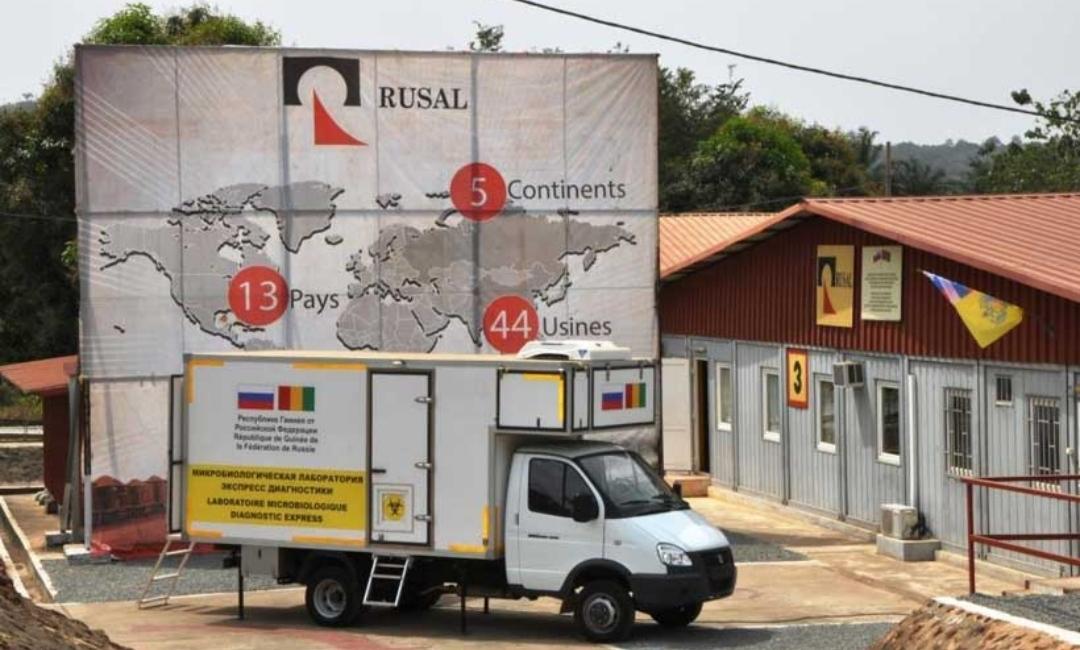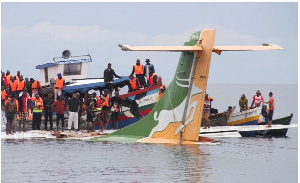News Africa
How Geopolitics Influencing Africa’s Fractured HealthCare System

At the backdrop of current geopolitical changes, Russia and Africa are apparently showing a renewed commitment towards strengthening comprehensive healthcare partnership, opening a new chapter after signing several joint agreements during the first and second Russia-Africa summits held in October 2019 and July 2023. After the sudden collapse of the Soviet empire, Russia noticeably backed away from Africa, but now on a meandering return journey to pick up where it departed in 1991.
The concept of healthcare delivery has absolutely been same across Africa. In practical terms, Africa is still bugged down all kinds of tropical diseases, communicable infections extremely common, and worse situation is that Africa lacks vaccine manufacturing spots. As a result, Africa largely depends on imported pharmaceuticals from the United States, Europe and Asia. United States and Europe have played significant roles in Africa’s health sector, but research also indicates that China and India dominate the pharmaceutical industry in Africa.
The Africa Centres for Disease Control and Prevention (Africa CDC) struggles to get external investment for vaccine manufacturing ecosystem. Over the past few years, Africa CDC’s engagement around the world has been directed at explaining its strategic insightful necessity for vaccine manufacturing, equity, localization, enhancement of supply chains and procurement processes.
In addition, it has stimulated critical discussions centered around the need for innovative financing and greater coordination to overcome the continent’s R&D and manufacturing talent deficits. One key takeaway was the consistent frequent appeal to potential foreign investors to cultivate partnerships, boost workforce development, and champion the complete localization of the R&D value chain – in fact this underscores the need to scale up local manufacturing for high-quality vaccines across Africa.
With the view to mobilize funds and find a responsive solution, African Union established the AU Covid-19 response fund and launched the African Vaccine Acquisition Trust (AVAT) with the African Export and Import Bank (Afrexim Bank). AVAT tried to acquire 300 million vaccines from Russian manufacturers. The Africa CDC noted with great disappointment during the coronavirus, to the large degree, how Russia terribly failed to deliver 300 million vaccines through the African Union after an agreement was duly signed. Acknowledging the fact the Africa CDC called for a timely access to and delivery of vaccines to the continent. Reports show, at least, that Russia however sprinkled a few thousands of vaccines, but only to its carefully selected allies and friends. Despite that, it was also a public evidence that the ‘Sputnik’ Covid-19 vaccines were, in a discriminating manner, delivered late to those African countries.
China shares its future with Africa
China has often indicated that Africa would always be in its community of a shared future. It has noticeably demonstrated its commitment, not only training health workers but also providing the necessary infrastructure in the health sector. Results are especially seen with all kinds of infrastructure it has built these years. The latest being the construction of the headquarters of the Africa CDC in Addis Ababa, Ethiopia, and further its efforts at promoting cooperation in basic healthcare delivery across Africa.
That decision was taken at the 7th Ministerial Conference of the Forum on China – Africa Cooperation (FOCAC) held in Beijing, the Government of China expressed its commitment to support the building of the Africa CDC HQ. African leaders welcomed this with appreciation and committed to support the realization of the project. Located in the African Village, south of Addis Ababa, the new site covers an area of 90,000m2 with a total construction area of nearly 40,000m2. The building includes an emergency operation center, a data center, a laboratory, a resource center, briefing rooms, a training center, a conference center, offices, and expatriate apartments, these all entirely constructed, furnished and equipped by the Government of China.
Chinese firms are actively engaging in joint vaccine production in Africa with local firms, helping countries, in accordance with their wishes, to realize localized vaccine production. According reports, Chinese firms have started localized production in Egypt, and signed cooperative agreements with Morocco and Algeria. It has, in addition, sent medical teams to a number of countries on the continent. China has also actively shared its anti-epidemic experience with African countries, and dispatched anti-epidemic medical expert groups or short-term anti-epidemic medical teams to 17 African countries to fight the epidemic alongside local people.
Undoubtedly, China is full-fledged participating in the African Vaccine Manufacturing Partnership (AVMP) launched by the African Union in April 2021. This Continental Vaccine Manufacturing Vision is “to ensure that Africa has timely access to vaccines to protect public health security, by establishing a sustainable vaccine development and manufacturing ecosystem in Africa.” The above glimpse is a splendid testimony of China’s unflinching support for health partnership with Africa.
India’s commitment to African health sector
Samir Bhattacharya, Associate Fellow at Observer Research Foundation, where he works on geopolitics with particular reference to Africa in changing global order, authoritatively says India’s partnership with Africa on healthcare has a long history, noting further that India is the third-largest investor in Africa’s healthcare sector, trailing only the United Kingdom and the United States. In addition to Indian hospitals and healthcare service providers, pharmaceutical manufacturing companies have a strong presence in Africa. It contributes to the India-Africa Health Fund. Given its progress in the healthcare sector in terms of infrastructure, technology, accessibility, and affordability, today India can meet the needs of Africa’s health systems. More than 50,000 African patients visit India on a medical visa each year, reflecting the demand for India’s affordable and high-quality healthcare. Nigeria, Kenya, Tanzania, Ghana, South Africa, Sudan, Zambia and Mozambique send the most number of patients to India. Namibia, Tunisia, Algeria, Morocco, and Ethiopia are the other leading countries.
“While we talk about economic growth and development in Africa, without investment in health care, economic development is not possible. Till March 31, 2021, the Indian Exim Bank had extended credit lines to several African countries for health projects totaling $1.6 billion. Given the importance of India in providing medicines to Africa, it is important to enhance collaboration between Indian healthcare providers and African partners in areas such as capacity building, the establishment of hospitals and investment in telemedicine,” according to academic researcher Bhattacharya.
Russia fostering its participation
With the current geopolitical situation, Russia is going through turbulent period with its roadmap to Africa. It takes along uprooting growing neo-colonialism in Africa. The large-scale Russia-Africa summit, and full of first-class symbolism, described as the first of its kind in the history of Moscow’s relations with Africa. According to official documents, there were a total of 569 working meetings that resulted in 92 agreements signed. In recent years, the traditionally ties of partnership between Russia and Africa have gained new momentum, although several of its bilateral agreements still remain as paperwork. In the joint communique, Russia and Africa “consider the perspectives for cooperation in preventing epidemics and find ways of strengthening cooperation in such fields as health care systems” and capacity of health care service providers, while noting further other public health challenges.
In the second communique issued in July 2023, Russia urged Africa to oppose neo-colonialism, noting the influence of Africa as an essential pillar of the multipolar world, and pledged to ensure compensation for the economic damage inflicted on African States. Referring to the communique (point 61) which states: “strengthen national health systems and improve their reliability and sustainability in the fight against epidemics, pandemics, and other public health challenges, whilst commending the work of the African Union on pandemic preparedness, responsiveness and resilience through the Africa Centre for Disease Control and Prevention.”
Russia claims several obstacles are hindering access to medical care and effective treatment of chronic diseases in African countries. The lack of medical personnel is a particularly pressing problem, while shortage of modern equipment poses headaches combined with official bureaucracy and lack of vision for the health sector by the political leaders. But there is the need to find a long-term solution to the burden of diseases in Africa.
With its Soviet-era and current cutting-edge modern technologies, Russia has adopted new steps forward to support Africa. In mid-April 2024, President Vladimir Putin reaffirmed Russia’s dedication to fostering a robust healthcare partnership with African countries, recognizing their vulnerability to emerging infectious diseases. In a welcome message to attendees at the inaugural Russian-African International Conference on Combating Infectious Diseases in Kampala, Uganda, from April 17 to 19, Putin highlighted Russia’s ongoing assistance programs aimed at bolstering sanitary and epidemiological well-being in Africa.
“Our assistance program launched in 2023 includes initiatives such as deploying ten mobile high-containment biological laboratories, training over 350 African specialists, and conducting joint scientific research,” stated President Putin. Russia will expand cooperation with African countries in the fight against infectious diseases. This year it plans interacting with Uganda, the Republic of Guinea, the Republic of the Congo, Burundi and Madagascar.
The commitment was demonstrated in actions like Burundi’s recent inauguration of a specialized infectious disease research laboratory, fully equipped by Russia. Ambassador Valery Mikhailov noted that the laboratory would considerably help in treating diseases like hemorrhagic fever and leptospirosis, addressing significant health challenges in the region. Last November, Russian virologists and military personnel deployed a mobile laboratory in Burkina Faso to assist in screening for dengue fever during an epidemic that claimed hundreds of lives in 2023.
Putin emphasized the urgent need to enhance medical, scientific, and technological capabilities across Africa to combat infections effectively. The ongoing conference in Kampala is part of the collaborative efforts proposed at the second Russia-Africa summit, aiming to facilitate knowledge sharing among medical professionals, epidemiologists, and microbiologists from 20 countries. “I am confident that this collective effort will yield tangible results and contribute to safeguarding the health of Africa’s population,’ concluded President Putin in his message of support for the conference.
At the opening the first Russian-African International Conference on Combating Infectious Diseases, Prime Minister Robinah Nabbanja invited Russia to partner in healthcare, particularly investing in producing diagnostic equipment, reagents, vaccines and pharmaceuticals. According to her, most of Africa is located in the subtropical zone, which is why there are often outbreaks of infectious diseases on its territory. As an example, Nabbanja cited the Ebola epidemic, which ravaged three African countries in 2014-2016: Guinea, Liberia and Sierra Leone. “Then 28,000 people were infected, more than 11,000 died,” she recalled.
In 2014-2016, Russia’s sanitary watchdog played a role in eliminating the Ebola outbreak in the Republic of Guinea, and in 2017 it assisted Madagascar in dealing with its outbreak of plague. Last year, department specialists participated in eliminating a major outbreak of intestinal infection in the Republic of the Congo. Despite the challenges, Russia still needs to upgrade or scale up its collaborative engagement, charting ways for materializing common priorities in the health areas with Africa.
“On the territory of the African continent, Russia has created two joint scientific centers for the prevention and research of infectious diseases: in the Republic of Guinea and the Republic of Burundi. The centers are fighting outbreaks of dangerous infections, organizing missions to monitor existing microorganisms and search for unknown ones and developing new tests. African specialists are also being trained,” Head of Federal Service for Surveillance on Consumer Rights Protection and Human Wellbeing (Russia’s sanitary watchdog) Anna Popova said at the Kampala conference.
Nevertheless, Russia also donated 7 mobile laboratories to African countries and trained 1,500 African specialists in epidemiology, infection diagnostics, and biological safety. “The main task of our cooperation is to allow African countries to independently prevent and respond to epidemics,” Popova stated.
In 2019, for instance, RusAl, Russia aluminium producer, and Rospotrebnadzor delivered a mobile laboratory and research supplies to the Russian-Guinean epidemiology and infectious diseases prevention center in the Republic of Guinea. The clinical and diagnostic research center of epidemiology and microbiology was built, fully equipped by RusAl in the Kindia region in 2015 at the height of the Ebola epidemic to help prevent the spread of the deadly virus in Guinea. The mobile laboratory was delivered as part of efforts to combat infectious diseases with an estimated $10 million support from the Russian Federation. But it was absolutely not financial help, as RusAl has operated in the Republic of Guinea since 2001. It owns Compagnie des Bauxites de Kindia (CBK), as well as the Friguia bauxite and alumina production facility.
Africa should widen its expectations
While Africa explores diverse mechanisms for improving the health delivery system, this calls for a more cautious approach to shifting engagements with potential external actors. In that direction, Africa should probably remain pragmatic by sustaining relations with its traditional partners, expanding existing linkages and building new multifaceted ties. It implies that relations are based on ensuring practical realization of health programs and projects, and the best way to avoid pure geopolitical complexities and backgrounds. Forget about geopolitics and look for genuine heavyweight investors and health organizations. Most importantly, Africa, with more than 1.4 population, needs people simply to be healthy in the economic transformation process.
Within the inconsistencies and uncertainties of the current global changes, African governments have to consider seriously, in broader scope, establishing relations for accessing long-term solutions to the fractured health sector. Tellingly African governments take steps to collaborate with international health organizations in launching more initiatives to boost much-needed innovations across the continent.
Often described that Africa has the fastest-growing population in the world. At the same time, it boasts of huge resources and yet poverty with diseases are the challenging order of the day. Over 50% of people living in Africa are under the age of 26. However, a deficit of modern technology makes the quality of life in the African continent is one of the lowest in the world. The African leadership has to undertake a structural shift in the socio-economic sphere and review policies to address continental health deficiencies to conform with the African Union’s Agenda 2063.
Source: Thepressradio.com| Kestér Kenn Klomegâh





